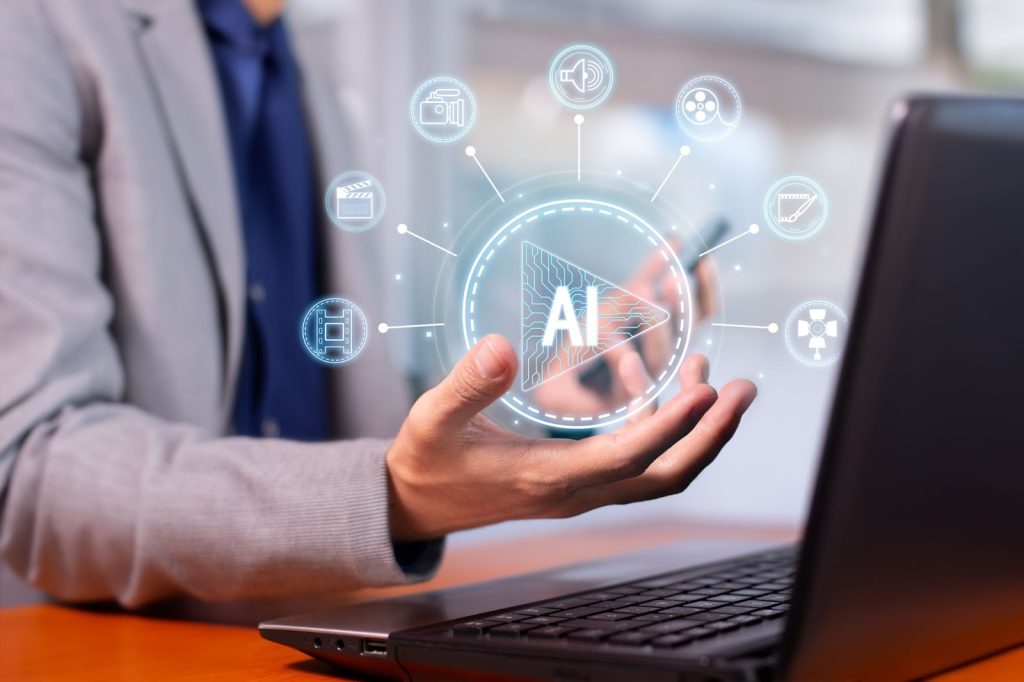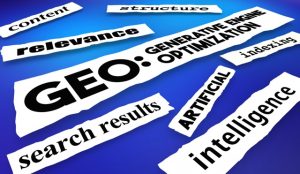In the ever-evolving landscape of content marketing, AI plays a pivotal role. Essentially, AI is the simulation of human intelligence processes by machines, particularly computer systems. In content marketing, AI algorithms analyze vast amounts of data to understand consumer behavior, predict trends, and generate content tailored to specific audiences.
Automated content creation, powered by AI, has become increasingly important for businesses aiming to stay competitive in today’s digital world. By leveraging AI technology, companies produce content at scale, saving time and resources while maintaining consistency and quality.
From generating blog posts and articles to crafting personalized email campaigns, automated content creation streamlines the content production process, allowing marketers to focus on strategy and creativity.
Now, let’s dive into the fascinating world of AI and content marketing, exploring its potential, challenges, and future trends. Throughout this blog, we’ll uncover the various ways AI is revolutionizing content creation and discuss best practices for integrating AI into your marketing strategy.
Whether you’re a seasoned marketer or new to the game, there’s something valuable to learn about the future of automated content creation. So, let’s embark on this journey together and unlock the power of AI in content marketing!

The role of AI in content creation
AI is revolutionizing content creation like never before. Gone are the days of manual content generation; now, AI-powered tools are shaping the future of content marketing. These tools utilize advanced algorithms and machine learning to analyze data, understand user preferences, and produce high-quality content at scale.
For instance, natural language processing (NLP) algorithms enable AI tools to understand and interpret human language, allowing them to generate coherent and relevant content. One example of such a tool is ChatGPT-3, a language generation model developed by OpenAI, which is able to write essays, articles, and even poetry with remarkable fluency and coherence.
Another example is automated video creation platforms like Lumen5, which use AI to transform text-based content into engaging video presentations. These tools analyze text input, identify key themes and concepts, and automatically generate corresponding visuals and animations.
There are a myriad of benefits of using AI for content creation. These AI-powered tools reduce the time and effort required to produce content, which enables marketers to focus on strategy and creativity.
Additionally, AI-generated content can be tailored to specific audiences to ensure relevance and resonance. Even more impressive is how AI algorithms analyze performance data in real-time, allowing marketers to iterate and optimize their content for maximum impact.
AI is transforming content creation by making it faster, more efficient, and more personalized than ever before. By embracing AI-powered tools, marketers unlock new possibilities and stay ahead in the competitive world of content marketing.
Advantages of automated content creation
Incorporating automated content creation into your marketing strategy offers many advantages that will transform how you engage with your audience. Let’s delve into some of the key benefits:
Efficiency and scalability
One of the most significant advantages of automated content creation is its ability to streamline the content production process. By leveraging AI-powered tools, marketers generate content at a much faster pace. This streamlines the content creation process and allows businesses to keep up with the demands of today’s content-hungry audiences.
Automated content creation facilitates scalability. With automated tools and algorithms, you have the ability to produce a high volume of content across various channels and platforms without sacrificing quality or consistency. This scalability is particularly advantageous for businesses looking to expand their content marketing efforts and reach a broader audience.
Whether creating blog posts, social media updates, or email newsletters, automated content creation enables you to scale your content production efforts to meet the growing demands of your audience and marketplace. By leveraging automation, you optimize your content creation workflow, increase productivity, and ultimately drive better results for your business.
Consistency and accuracy
With automated content creation, your messaging remains consistent across all channels. AI-powered tools adhere to predefined style guides and brand standards. This minimizes the risk of errors or inconsistencies in your content.
While it is always beneficial to double-check everything before posting your content, these tools help maintain accuracy by fact-checking information and ensuring that your content is up-to-date and relevant.
Personalization and customization
Automated content creation empowers you to deliver personalized experiences to your audience at scale. By leveraging data analytics and machine learning algorithms, AI tools analyze user behavior and preferences to tailor content to individual interests and preferences.
Whether it’s dynamically generated email campaigns or personalized product recommendations, automated content creation allows you to connect with your audience on a deeper level. By harnessing the power of AI, you will unlock new possibilities and elevate your content marketing efforts to new heights.

Challenges and considerations
As you embark on your journey into automated content creation, it’s crucial to be aware of the challenges and considerations inherent in leveraging AI technology. Understanding these factors will help you navigate the landscape more effectively and make informed decisions. Here are some key aspects to consider:
Quality control and human oversight
While AI-powered tools streamline the content creation process, it’s crucial to maintain quality control and ensure that the content meets your standards.
Human oversight plays a vital role in reviewing and refining AI-generated content, identifying any errors or inconsistencies, and making necessary adjustments to enhance the overall quality.
Strike a balance between automation and human creativity by incorporating human input into the content creation process; this will ensure your content resonates with your audience.
Ethical implications of AI-generated content
As AI becomes increasingly prevalent in content creation, it’s important to consider the ethical implications of using automated tools. From issues related to copyright infringement to concerns about misinformation and bias, AI-generated content raises complex ethical questions that require careful consideration.
It’s essential to adhere to ethical guidelines and industry best practices so that your content is accurate, transparent, and respectful of intellectual property rights.
Potential limitations and risks
While AI-powered tools offer numerous benefits, it’s essential to acknowledge their potential limitations and risks. AI algorithms may not always produce content that aligns perfectly with your brand voice or resonates with your audience.
Additionally, there’s a risk of overreliance on automation; this might lead to a loss of human touch and authenticity in your content. It’s important to strike a balance between automation and human input, leveraging AI as a tool to enhance, rather than replace, human creativity and expertise.
With careful planning, thoughtful oversight, and a commitment to ethical practices, you can harness the power of AI to elevate your content marketing efforts and drive meaningful results.
Future trends and developments
As we look ahead to the future of automated content creation, it’s clear that exciting developments and innovations are on the horizon. To fully utilize AI-powered content tools for your content, it’s crucial to be aware of the key trends and predictions poised to shape content creation.
Emerging technologies in AI and content marketing
The rapid advancement of artificial intelligence continues to drive innovation in content creation. From NLP algorithms to deep learning models, AI technologies are becoming increasingly sophisticated, enabling more nuanced and contextually relevant content generation.
Advancements in data analytics and machine learning algorithms are providing marketers with valuable insights into audience preferences and behavior, allowing for more targeted and personalized content strategies.
Predictions for the future of automated content creation
Experts anticipate a continued evolution of AI-powered content creation tools and techniques. We expect to see further advancements in natural language generation (NLG) capabilities, enabling AI systems to produce content that is indistinguishable from human-written text.
Additionally, there is growing interest in the application of AI for multimedia content creation, including image and video generation, opening up new possibilities for creative storytelling and visual communication.
As AI technologies continue to mature, we anticipate a proliferation of automated content-creation solutions across various industries and sectors.
Opportunities for innovation and growth
As AI continues to revolutionize content marketing, there are boundless opportunities for innovation and growth. Businesses that embrace automated content creation technologies stand to gain a competitive edge by streamlining their content production processes, enhancing efficiency, and driving greater audience engagement.
By leveraging AI-powered content tools to create more personalized and relevant content experiences, brands strengthen customer relationships, drive conversions, and achieve marketing objectives.
As AI technologies become more accessible and affordable, expect to see a democratization of content creation. This change will empower businesses of all sizes to harness the power of AI to tell their stories and connect with their audiences in meaningful ways.
The future of automated content creation is bright and promising, with endless possibilities for innovation and growth. By staying informed about emerging technologies, embracing new opportunities, and adopting a forward-thinking mindset, businesses will position themselves for success in an increasingly AI-driven world.

Best practices for integrating AI into content marketing
As you integrate AI into your content marketing strategy, it’s essential to follow best practices to ensure success. These practices are based on empirical evidence, expert knowledge, and collective experience, and they represent the most reliable and proven approaches to achieving desired outcomes.
Identifying best practices typically involves researching and analyzing various methodologies, tools, and processes used by industry leaders and top performers. This may include reviewing case studies, benchmarking studies, industry reports, and academic research to understand a domain’s success factors and common practices.
Once best practices have been identified, they are implemented through a systematic approach that involves several key steps:
- Evaluation: Assess the relevance and applicability of best practices to your context, objectives, and constraints. Consider organizational culture, resources, and capabilities.
- Adaptation: Tailor best practices to fit your organization’s unique needs. Customize processes, workflows, or methodologies to align with goals and accommodate constraints.
- Implementation: Introduce best practices through structured initiatives. Provide clear guidance, training, and support for stakeholders.
- Monitoring: Regularly evaluate best practice implementation. Measure KPIs, track progress, and gather feedback to identify areas for improvement.
- Iteration: Continuously refine adopted best practices based on feedback and evolving needs. Foster a culture of continuous improvement and learning.
By following these steps, organizations will effectively identify, adapt, and implement best practices to enhance performance, achieve strategic objectives, and drive sustainable growth.
Let’s explore some key strategies and tips for effectively leveraging the industry’s best practices for AI in content creation:
Strategies for successful implementation
When implementing AI into your content marketing efforts, start by clearly defining your objectives and goals. Identify areas where AI can add value, such as improving efficiency, enhancing personalization, or optimizing content performance.
Next, invest in robust AI-powered tools and platforms that align with your specific needs and objectives. Collaborate closely with your team to ensure buy-in and alignment across departments and provide training and support to empower employees to leverage AI effectively.
Finally, continuously monitor and evaluate the performance of your AI-powered initiatives, making adjustments as needed to optimize results and achieve your marketing goals.
Tips for optimizing AI-generated content
- Provide clear and specific input to AI algorithms, including target keywords, audience demographics, and desired tone and style. This will help ensure the generated content aligns with your brand voice and resonates with your target audience.
- Leverage AI analytics tools to track and analyze the performance of your content, identifying trends, patterns, and areas for improvement. Use this data to refine your content strategy and make data-driven decisions.
- Incorporate human oversight and quality control processes to review and approve AI-generated content, ensuring accuracy, relevance, and compliance with brand guidelines.
Case studies and success stories
One of the most effective ways to learn about the benefits of integrating AI into content marketing is by exploring real-world case studies and success stories. Look for examples of businesses in your industry or niche that have successfully implemented AI-powered content marketing initiatives and achieved tangible results.
Pay attention to key metrics such as engagement, conversion rates, and ROI, and consider how you might apply similar strategies and tactics to your marketing efforts. By studying and learning from the experiences of others, you will gain valuable insights and inspiration for integrating AI into your content marketing strategy.
Integrating AI into your content marketing strategy requires careful planning, thoughtful execution, and ongoing optimization. By following best practices, optimizing AI-generated content, and drawing inspiration from real-world case studies, you can harness the power of AI to enhance your content marketing efforts and achieve your business objectives.
Raise the bar of your content creation with Revity

At Revity Marketing Agency, we stand ready to guide you through this transformative process. We partner our expertise with your passion for your business to help you harness the power of AI in crafting compelling content that captivates and converts.
With our tailored strategies, personalized approach, and unwavering commitment to excellence, we’re here to elevate your content marketing efforts to new heights. Contact Revity to learn more.





